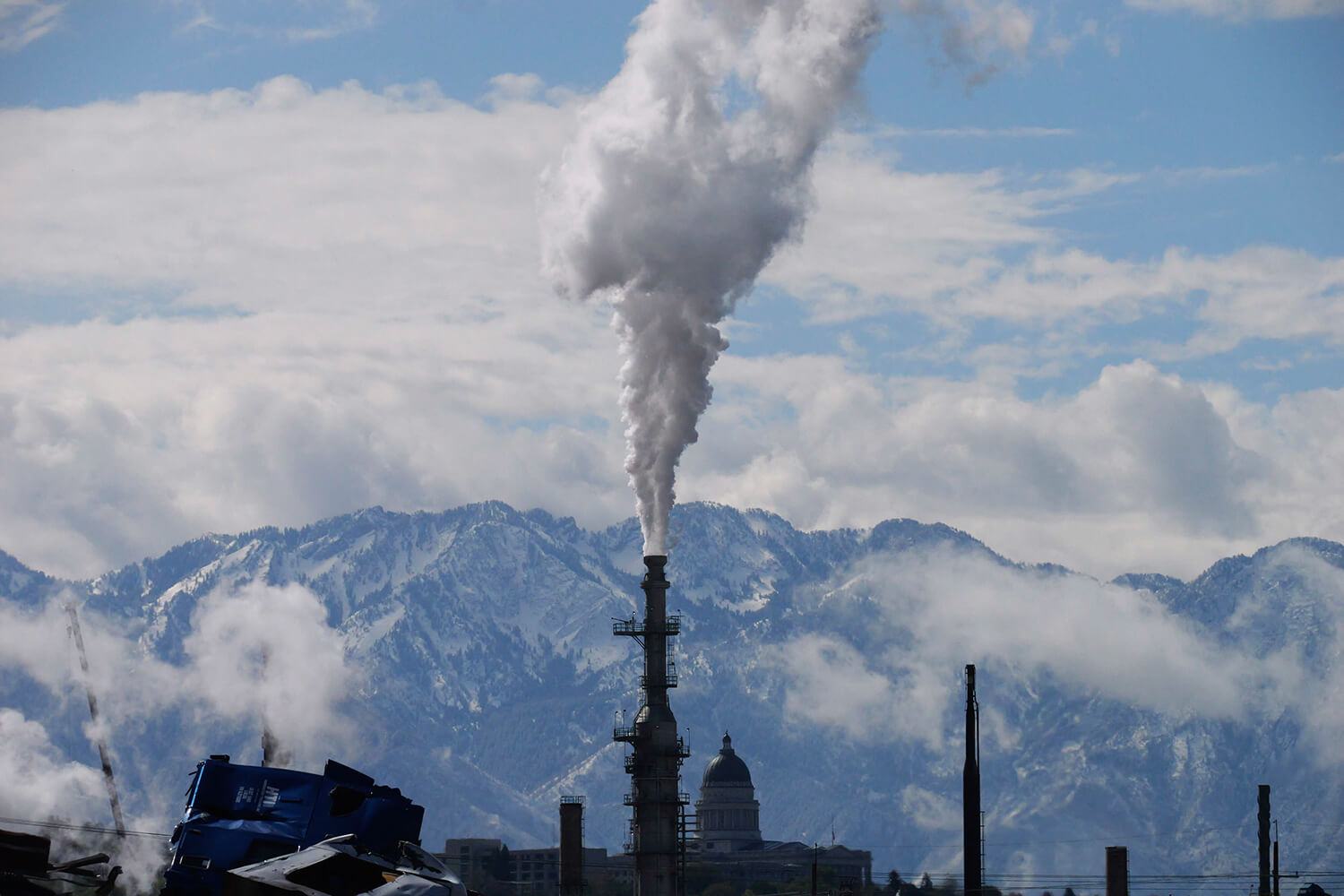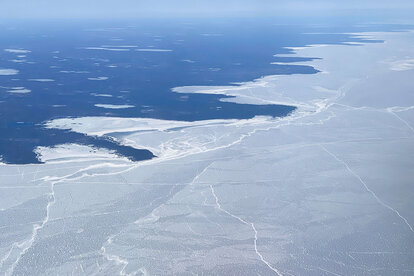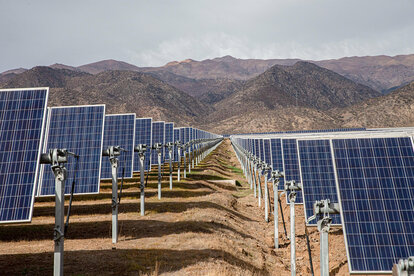War in Europe
Energy, climate change and Putin

The Utah State Capitol, rear, is shown behind an oil refinery on Thursday, May 12, 2022, in Salt Lake City
© AP/RICK BOWMERWhile we have not yet recovered from the tremendous impact of the pandemic caused by COVID-19, the world as a whole, Europe in particular and Ukraine dramatically, is facing a new global crisis scenario, even if, for the time being, the guns are only sounding in that country. And at the centre of this global crisis is, once again, energy, a key element that is also the main cause of the most serious pandemic the planet is suffering, such as the climate crisis, which is becoming more present every day, exceeding the most pessimistic forecasts in terms of the timetable for its effects.
Our society, but especially the richest countries, our select OECD world, have ignored the unmistakable signs that highlighted both our vulnerability in the field of energy dependence and the seriousness of the threat posed by the use of fossil fuels in the process of global warming.
Regarding the former - our dependence - we barely reacted to the tremendous blow to our economies from the oil crisis of the 1970s. We ignored the warning of our vulnerability that a small group of countries gathered around one table, OPEC, could put our economies in check simply by taking action on the quantity and price of their oil production. Yes, we ignored the din of that acoustic signal and just tinkered with our energy supply. Since that first alarm, we have had to take part in armed conflicts to defend our oil supply, we have heard experts and social organisations a thousand times calling for a change in our energy model.

An aerial image shows ice formations on Great Slave Lake, south of Yellowknife, Northwest Territories, Canada.
© AFP/PATRCIK FALLONNor have we paid much attention to the effect that the energy model based on the combustion of coal, gas and oil has on our environment. Twenty-five climate summits later, with the Paris Agreement in the middle, government action is not keeping up with the seriousness of the reality that the international scientific community, which includes the UN's Intergovernmental Panel on Climate Change, regularly puts on the table, nor with the increasingly obvious consequences of how our presence on earth is going to change.
Now Putin has placed before us the reality we did not want to see. We are in a position of weakness, with an unsustainable dependence on Russian oil and gas to a greater or lesser degree depending on the EU countries but very vulnerable as a whole. We can apply sanctions, the main European and American brands can leave Russia, we can confiscate the possessions of its oligarchs, but it will cost us a lot -even in the medium term- to give up its fossil fuels with whose profits it finances, unfortunately, this merciless and ignominious war.

Solar panels at the Quilapilún solar power plant, a Chilean-Chinese joint venture, in Colina, Chile
© AP/ESTEBAN FELIXAnd now?
We have lost a lot of time and that is going to cost us, for the time being, a very hard winter ahead. Moreover, our energy vulnerability is preventing us from emerging from the economic crisis caused by the pandemic and, to make matters worse, the uncertainty about the duration of the invasion and the prospect of other tensions that may arise in the near future are a very dark cloud for the future of our economies. What we can do is to react with foresight. It is not a question of changing suppliers - which will also have to be done in the short term, no doubt - but fundamentally of promoting energy self-sufficiency. This self-sufficiency must have many spheres, as we must seek it at the level of international communities, such as the European Union, countries, regions, municipalities and even individuals through self-consumption.
This self-sufficiency is currently only granted to most of the countries in our area by renewable energies. Some countries that have fossil resources will be able to temporarily resort to them to avoid this energy crisis, which has only just been announced, but they will also have to face the transition to renewable energies in the medium term because the evidence of climate change will impose it sooner rather than later.
Others look back to the nuclear solution, ignoring two fundamental elements: today it is four or five times more expensive than the average of wind and photovoltaic technologies and, secondly, hypothetical new reactors in sufficient numbers to cover the needs that will arise from the reduction or increase in the price of fossil fuels will not be available, in the best-case scenario, for another 12 to 15 years.
In the Mediterranean area covered by these pages, we fortunately have an abundance of renewable resources which, thanks to increasingly cheaper technology, will enable us to make rapid progress in achieving the desired energy self-sufficiency which will be the essential requirement for obtaining the stability needed to tackle the fight against climate change, which is, in short, the great challenge facing humanity as a whole today. Let us not look the other way.
Sergio de Otto, Journalist / Founder of the Renewables Foundation
Journalist, founder of SdeO Comunicación, a company specialized in the energy and environmental sector with more than twenty years of experience, and trustee of the Fundación Renovables. He has also been Director of External Relations and Communications for the Spanish Wind Energy Association (2007-2012), the National Environmental Congress (2006) and the Association of Renewable Energy Producers (APPA) (1999-2004).
